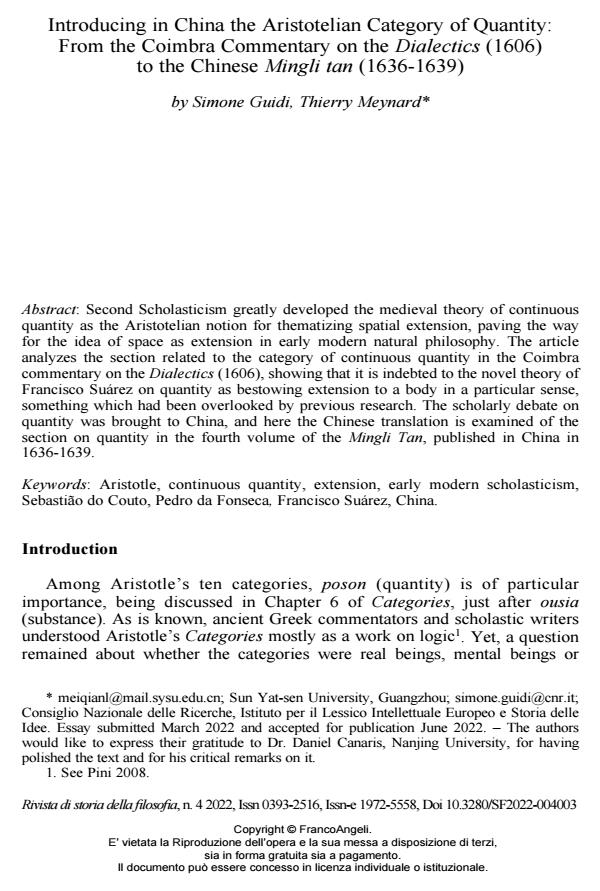Introducing in China the Aristotelian Category of Quantity: From the Coimbra Commentary on the Dialectics (1606) to the Chinese Mingli tan (1636-1639)
Journal title RIVISTA DI STORIA DELLA FILOSOFIA
Author/s Simone Guidi, Thierry Meynard
Publishing Year 2023 Issue 2022/4
Language English Pages 21 P. 663-683 File size 898 KB
DOI 10.3280/SF2022-004003
DOI is like a bar code for intellectual property: to have more infomation
click here
Below, you can see the article first page
If you want to buy this article in PDF format, you can do it, following the instructions to buy download credits

FrancoAngeli is member of Publishers International Linking Association, Inc (PILA), a not-for-profit association which run the CrossRef service enabling links to and from online scholarly content.
Second Scholasticism greatly developed the medieval theory of continuous quantity as the Aristotelian notion for thematizing spatial extension, paving the way for the idea of space as extension in early modern natural philosophy. The article analyzes the section related to the category of continuous quantity in the Coimbra commentary on the Dialectics (1606), showing that it is indebted to the novel theory of Francisco Suárez on quantity as bestowing extension to a body in a particular sense, something which had been overlooked by previous research. The scholarly debate on quantity was brought to China, and here the Chinese translation is examined of the section on quantity in the fourth volume of the Mingli Tan, published in China in 1636-1639.
Keywords: Aristotle, continuous quantity, extension, early modern scholasticism, Sebastião do Couto, Pedro da Fonseca, Francisco Suárez, China.
Simone Guidi, Thierry Meynard, Introducing in China the Aristotelian Category of Quantity: From the Coimbra Commentary on the Dialectics (1606) to the Chinese Mingli tan (1636-1639) in "RIVISTA DI STORIA DELLA FILOSOFIA" 4/2022, pp 663-683, DOI: 10.3280/SF2022-004003